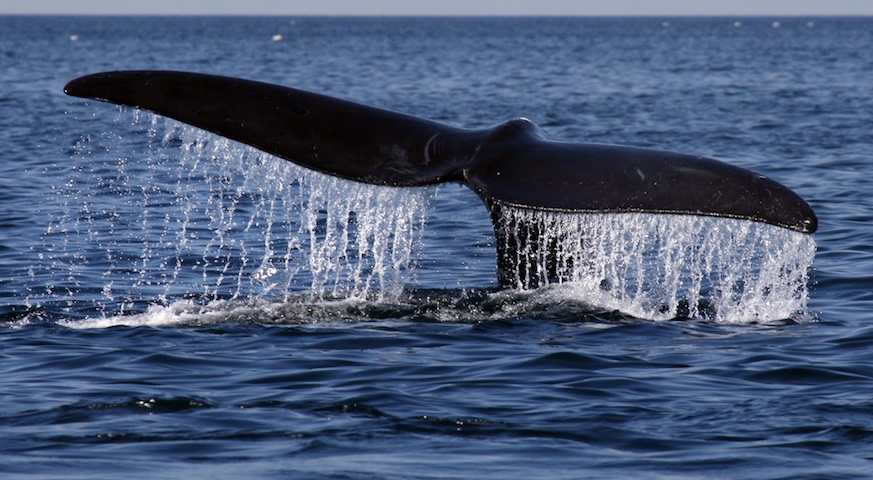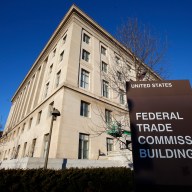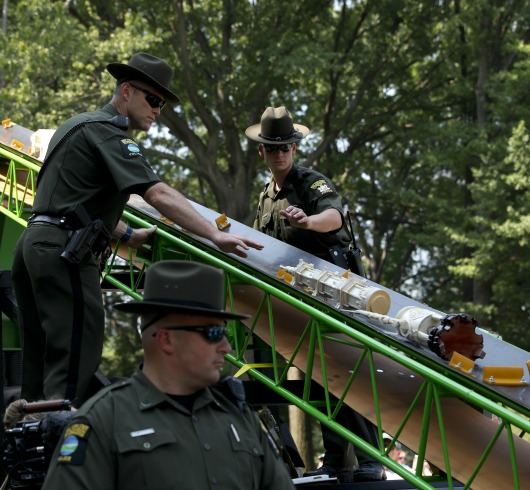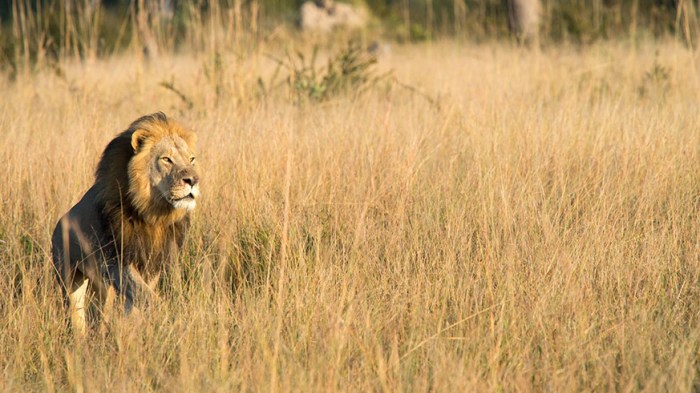Right whales off Massachusetts shores are causing some troubles for local lobster fishers.
State officials have extended a ban on lobster traps in Cape Cod Bay because of the marine mammals still feeding in those waters.
North Atlantic right whales are an endangered species, with only about fewer than 450 left. Each year, some of these whales visit the Massachusetts waters, but they’re usually gone by now, said Erin Burke, a protected species specialist with the Massachusetts Division of Marine Fisheries.
“They’re here January through April, and the height of our season is mid-March through the end of April, when the largest are seen,” she said. “This year things are a little odd, they’ve stuck around a little longer, but they’re not going to stay once the food is gone.”
Still, as long as they’re around feeding on zooplankton, lobstermen cannot set up their traps.
“The biggest threats they face are entanglement in fixed fishing gear and collisions with vessels,” said Heather Pettis, an associate scientist at the Anderson Cabot Center for Ocean Life at the New England Aquarium.
Each year, lobster fishers are barred from setting up their traps until the end of April to prevent right whales from getting entangled. Last year, state officials extended the ban by a week, and during that week, the whales left the area.
This year, the ban has already been extended by one week and has just recently been extended another, in effect through May 15, putting the start of lobster season on hold.
There are a number of other efforts to protect these right whales, as well. The National Oceanic and Atmospheric Administration recently announced reduced speed limits for vessels in all waters of Cape Cod Bay as well as east of Boston, where right whales were seen in the beginning of May. That protection is in effect until May 16.
About two-thirds of the entire right whale population comes to Massachusetts, Burke said, and in the last 10 years, that number has been increasing even more. Since they are critically endangered, she added, it’s crucial to keep these waters safe.
“It’s stressful, and since 2010 the right whale population has been in decline. … This year, they didn’t have any babies,” she said. Out of those less-than-450 whales left, fewer than 100 are reproductive females. “Cape Cod Bay is more important than ever for protecting their population.”
If you want to see these whales while they’re still around Massachusetts, you’ll have to be careful — and quick. It’s against federal and state law to come within 500 yards of right whales, and that applies to boaters in the water as well as drones and other aircrafts in the sky.
“This year they’re definitely sticking around longer and in greater numbers, and there have also been sightings off Marblehead, Gloucester, Rockland, and pretty close to shore, which is exciting for folks who can stand at the short and watch them,” Pettis said. But for how long that will be a possibility, she can’t really say.
“With these guys it’s pretty simple: they’re following the food,” she said. “They could hang out for a week or two or be gone tomorrow, it really depends on how concentrated that food resource is. As soon as that dissipates, they’ll be gone.”
Right whale facts
Right whales can weigh up to 79 tons, or 158,000 lbs and reach lengths of 50 feet
They can live at least 70 years, and could potentially live as long as 100 years
Northern right whales have baleen bristles up to 9.5 feet long
Right whales were designated the official marine mammal of Massachusetts in 1980



















